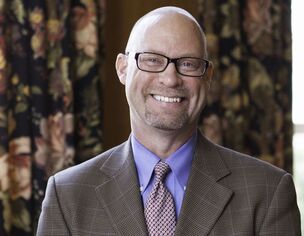|
CAS President Gavin Henning encourages us to "close the loop" on our assessment projects. Read about managing change as you put your assessment findings into action.  While there are variations, the basic assessment cycle comprises four steps: identify outcomes, develop strategies to achieve the outcomes, gather and interpret data related to outcome achievement, and close the loop. A great deal of emphasis is placed on the first three steps, but less on the final and perhaps most important step: closing the loop. Assessment is meaningless without putting the findings into action. Closing the loop is relatively easy when significant resources aren't needed to make the change or the person making the change has control over the implementation of recommendations. It's not difficult for me to make a change in one of the programs I direct based on an assessment that I've done. Program improvements typically don't take resources, and I have power over the change process. However, implementing change is much more challenging when recommended improvement is an adjustment to organizational processes. For assessment to have impact at an organizational level, change management needs a part of closing the loop. Below are five ways for managing change from assessment.
Assessment is more than collecting and analyzing data. The most important step is implementing the recommendations. Considering closing the loop as change management may improve the probability that improvement will occur and be sustained over time. --- Dr. Gavin Henning is Professor and Program Director for the Master of Higher Education Administration and Doctorate of Education at New England College. He also is the President of CAS and a recent past present of ACPA: College Student Educators International. Gavin actively contributes to higher education assessment literature, and he recently co-authored Student Affairs Assessment: Theory to Practice and co-edited Coordinating Student Affairs Divisional Assessment: A Practical Guide. He holds a Doctor of Philosophy degree in Education Leadership and Policy Studies and a Master of Arts degree in Sociology both from the University of New Hampshire as well as a Master of Arts degree in College and University Administration and a Bachelor of Science degree in Psychology and Sociology from Michigan State University.
0 Comments
Leave a Reply. |
AuthorWrite something about yourself. No need to be fancy, just an overview. Archives
July 2024
Categories
All
|
|
Council for the Advancement of Standards in Higher Education. All Rights Reserved.
2455 East Sunrise Boulevard, Suite 816| Fort Lauderdale, FL 33304 800.889.7270 (p) | [email protected] |
